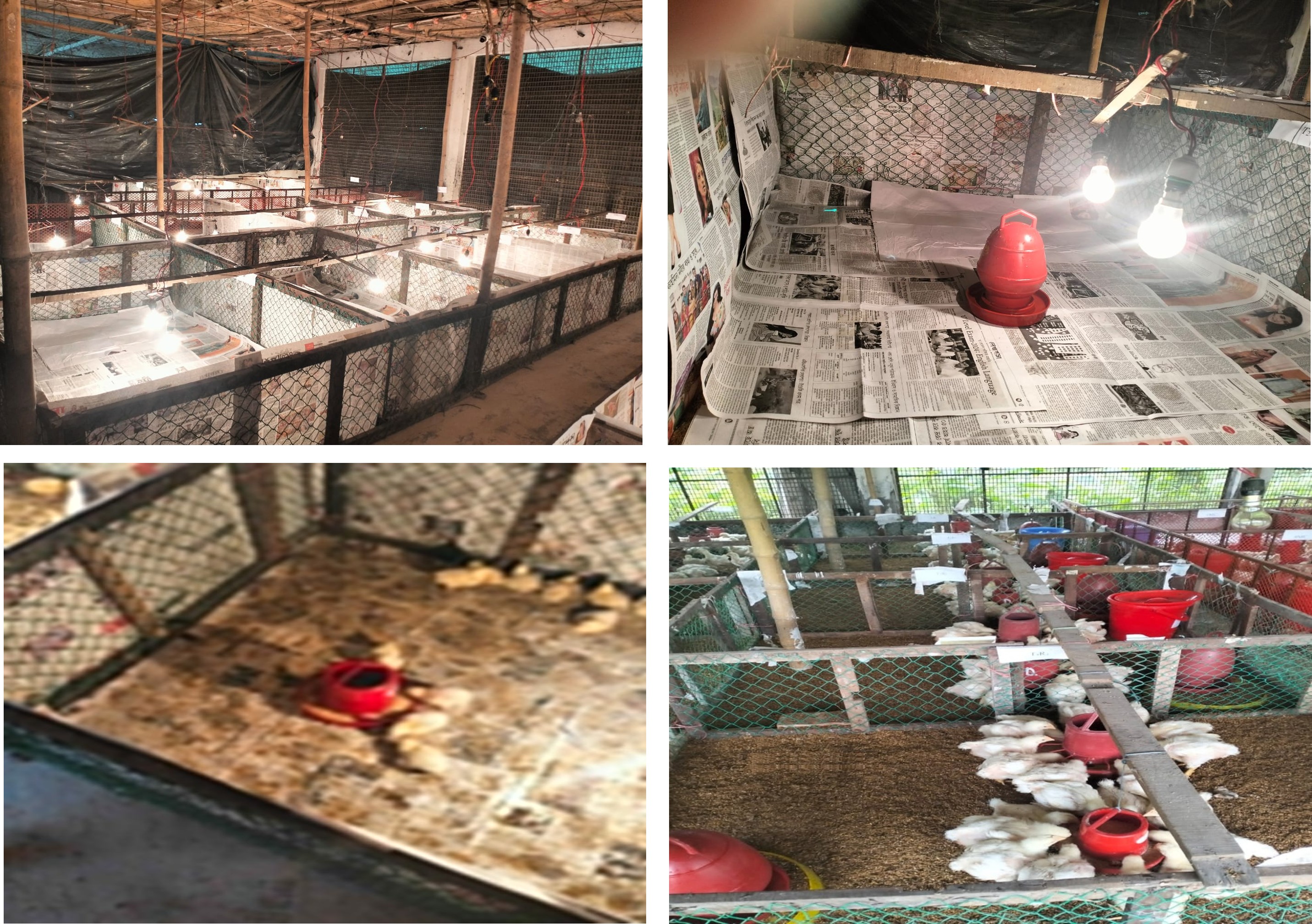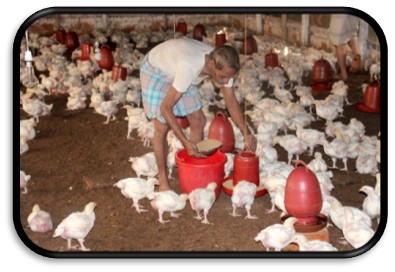Inimical Impacts of Injudicious Use of Drugs and Additives on the Production Performance, Antibiotic Residue, Meat Quality and Profitability of Small Scale Broiler Farming
Consumers always demand broilers that are produced hygienically and are devoid of any chemicals and biological contaminants. Small-scale farmers who produce about 80% of the total poultry production, often use antibiotics, additives, or other growth enhancers. The imprudent use of various drugs and additives may lead to 7-8 % additional production cost, causing inferior meat quality, or health risks for consumers.
Baseline survey: A baseline survey was carried out with approximately 100 dealers, 500 randomly sampled small-scale broiler farmers. Farmer’s training: The small-scale farmers were selected and day-long training was conducted Rajshahi and Mymensingh districts. ‘On-station’ trial: The growth performance, carcass traits, meat quality, blood and lipid profiles of commercial broiler chickens raised with or without the injudicious use of drugs and additives were evaluated. The trial was conducted at the BAU Poultry Farm.
The results of survey data demonstrated that the small-scale farmers used drugs and additives injudiciously, very rarely followed after consultation with a veterinary doctor. This injudicious use of drugs and additives incurs almost 6-8 % extra cost. The ‘On-station’ trial conducted at BAU Poultry Farm indicated that the injudicious use of drugs and additives does not yield any significant impact on productivity, carcass or meat qualities.
Small- and medium-scale farms use drugs and additives injudiciously in farm operations. Research studies demonstrated that the injudicious use of drugs and additives does not yield significant results in broiler final body weight, FCR, meat quality or other blood metabolic profiles. Some of the blood metabolites and liver enzymes were significantly affected by the supplementation of drugs and additives. Farmers should only use medications and additives after consulting with an authorized veterinary practitioner.
As proposed in the project, the small-scale broiler farmers may understand that the antibiotics, other drugs or additives they routinely use in daily farm operations are mostly unnecessary. Once they provide medication to the broilers prudently only in consultation with registered veterinary practitioners, this may reduce by 6-8 % extra cost, which could be added to the farmer’s benefit.
A non-governmental organization has come forward to implement standard farm management protocols in small-scale grill farming. More than four or five parties become involved for a mutual understanding, wherein one or more commercial banks will provide loans to selected small-scale farms committed to producing broilers while adhering to normal farm management protocols and eschewing needless medications and chemicals. Through mutual agreement, farmers can easily avoid dealers or paiker/middlemen for DOCs, feed, medications, or the sale of live birds, hence enhancing profitability and meat quality.


